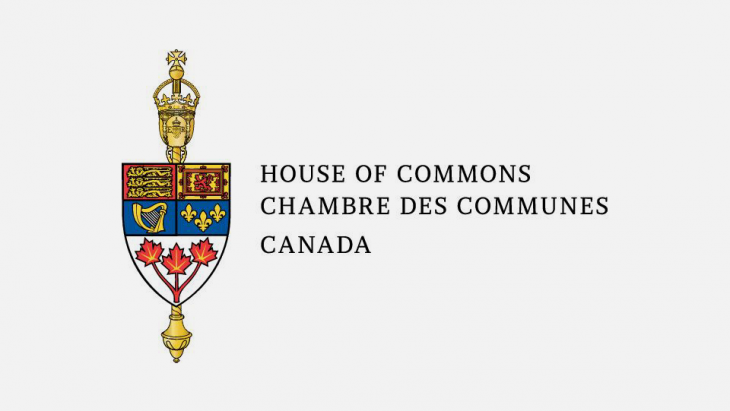
By Ken Kelley
OTTAWA – An exchange between a Telus executive and a Calgary MP got a little heated late Thursday during a virtual meeting of the Standing Committee on Industry, Science and Technology
The bulk of the tension stemmed from a line of questioning directed at Telus EVP and chief customer officer Tony Geheran by Conservative MP Michelle Rempel-Garner (Calgary Nose Hill).
After asking the executive for the company’s cost per gigabyte when it comes to serving its customers (something Geheran said he didn’t have at hand and offered to send after the meeting) and noting that the figure doesn’t seem to be easy for anyone to find, she accused Telus of holding rural internet service deployment and availability hostage, pending certain regulatory decisions.
“I’m trying to figure out your assertions that you can’t build out rural broadband if certain criteria aren’t met,” Rempel-Garner said. “It’s a false dichotomy. I see the profit you report… but it seems to be policy tension between the incumbents and smaller providers. It always seems as though rural internet service is being threatened.”
Her statement refers back to comments Telus CEO Darren Entwistle made in February, in which, during a CRTC hearing on wireless policy, he said mandated MVNO access would see the company slash its workforce by 5,000 people and reduce network investments by $1 billion.
Rempel-Garner suggested Geheran “dial it back a little bit” and acknowledge that Entwistle’s approach wasn’t conducive to what government is trying to accomplish and wasn’t the best way to build trust with vested parties.
“I would say the $43 billion we’ve remitted in tax receipts since 2000 is the best sign to say that we would work with anyone and work effectively for the benefit of Canadians,” Geheran countered. Entwistle pointed to that number during the company’s recent annual general meeting, calling it “tax morality in action for the greater good of society.”
Rempel-Garner wouldn’t let it go at that, however. After acknowledging that Telus is making “a lot of money,” she once again asked Geheran about Telus’ cost per gigabyte of service.
“The cost for us to provide spectrum to satisfy subscribers is $340 per subscriber,” Geheran answered, referring instead to what the company says is the too-high cost for spectrum in Canada. “The equivalency in Japan is $30 per sub, Germany $140 and the U.S. $200. When you’ve got a geography the size of Canada…”
Rempel-Garner cut the Telus executive off, noting she felt it was something she assumed would decrease over time.
“We’re all tired of the bullying tactics that have been put forward, and we need to have a plan that delivers service to rural internet users,” she stated. “Big incumbents operate in a highly-regulated environment so how can we manage to provide access to everyone in a very short period of time while that continues to work?”
Rempel Garner didn’t reference her own recently announced plan to accelerate the rollout of 50 Mbps download and 10 Mbps upload speed broadband to all Canadians by the end of 2021.
“I would say we would be as interested in making a good economic return and supporting a national program and provide access to all Canadians,” Geheran stated. “If we can all align and we can make the spectrum assets work for us cost effectively, that would do a big part of the job. If we were to align private, provincial and federal capital together to build out fixed infrastructure, we could do that quite easily.”
“Removing data caps would simply overwhelm the mobile wireless network, impairing service for everyone in that area, including for first responders and 9-1-1 services.” – Dean Prevost, Rogers Communications
Earlier in the session, the executives unanimously agreed internet usage has exploded since the start of the Covid-19 pandemic and laid bare the pain points companies feel when it comes to network expansion.
Cogeco’s Marie-Hélène Labrie, who serves as senior vice-president and chief public affairs and communications officer, said the company has seen daytime usage rise by more than 60%, which includes an approximate 40% increase of video streaming services traffic.
Dean Prevost, president, Rogers for Business, said his company has seen home internet usage rise more than 50% while voice call usage is up 40%. Geheran said Telus has consistently experienced four times the network traffic compared to its busiest day pre-Covid-19.
While all witnesses agreed improving internet service for rural Canadians is important, the road-map to get there remains as murky.
Also seizing upon Entwistle’s controversial comments from earlier this year, Conservative MP Jeremy Patzer (Cypress Hills—Grasslands, Sask.) questioned precisely how committed Telus and Rogers are to customers in rural Canada.
“We don’t keep making threats,” Geheran ascertained. “If you’re going to have policy that will undermine investment strategy, you have to act accordingly. And if policy is going to change so dramatically that it will undermine future investments and the returns we would need to generate, we would certainly withdraw our investment. However, with broadband, the proof is in the pudding: We’ve invested $6 billion in fiber infrastructure, $1 billion of which was to rural and small communities. If regulatory policy is stable and the return economics are viable, we will continue to invest.”
Geheran noted that where fixed network costs are prohibitive, Telus has leveraged its wireless network, and currently serves 80,000 high speed internet subscribers through the technology. He said the company invested $9 million to support recent increased usage.
In a bid to help rural Canadians reduce costs as they spend more time working and learning from home, Prevost said Rogers launched a Rocket Hub wireless plan that includes a larger data bucket with the lowest cost for extra data the company has ever offered. But he said where the company does not currently have high-capacity, high-speed wireline networks, it is not able to provide unlimited wireless data for internet access at home.
“Removing data caps would simply overwhelm the mobile wireless network, impairing service for everyone in that area, including for first responders and 9-1-1 services,” Prevost said.
“There are excessive delays in obtaining necessary permits for accessing support structures, such as poles or municipal rights of way.” – Leonard Eichel, Cogeco
Leonard Eichel, senior director, regulatory affairs at Cogeco, said his company sees two primary barriers to the deployment of digital infrastructure in rural areas:
“[The first is] access to support infrastructure. There are excessive delays in obtaining necessary permits for accessing support structures, such as poles or municipal rights of way. These delays are slowing down more than 50 of the company’s network expansion projects, which includes hundreds of pending permits, preventing us from connecting close to 12,000 Canadian homes in a timely manner,” he said.
Eichel’s concerns about access to support infrastructure were echoed by Prevost as well as Xplornet chief legal and regulatory officer C.J. Prudham.
“Additionally, we are very concerned by the CRTC’s decision on wholesale rates and the negative effect it would have on rural and regional investments going forward,” Eichel continued. “Allowing independent service providers to use our network at heavily discounted wholesale prices with no obligation for them to invest in network capacity will not ensure ongoing and sustainable investment by Cogeco in its regional network.”
Telus’ Geheran was most vocal in voicing his opinion that if the Canadian government was serious about wanting to connect rural Canadians, it would re-evaluate the deployment of spectrum.
“The current practice of setting aside more than 40% of available spectrum for regional providers is not working,” he said. “Although this practice has been in place since 2008, large amounts of set-aside spectrum remain undeployed in rural areas. Set-asides have also led Canada to have some of the highest spectrum costs in the world.”
“The barriers you encounter in rural areas of the country is different than elsewhere,” added Prudham. “There are cases where it’s economically feasible to serve certain areas but we can’t get the spectrum, can’t get municipal cooperation to do it, or we can’t get access to poles and other key infrastructure.”
Pictured in the virtual meeting, clockwise from top left, are Cogeco’s Labrie, Telus’ Geheran, Xplornet’s Prudham, and Rogers’ Prevost.



